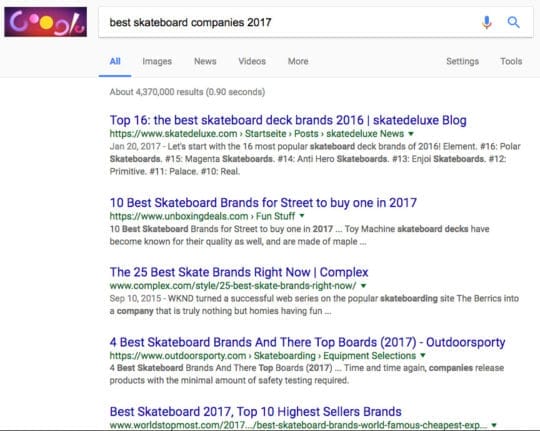Link building can be a cumbersome process. It’s expensive and very time-consuming. But your link portfolio is always under review by the search engines that bring you your bread and butter. So, it’s important to stay on top of the task!
There are, however, smart ways to link build and smarter ways. Let’s look at some of the techniques you can use to make sure that your link building efforts are getting you results.
1. Get More with Fewer
 This may come as a surprise, but you don’t need more links. You need better and more relevant ones! Finding links takes a lot of resources, so make sure you’re going after the links that count. Starting an excellent link building strategy means using restraint. You probably already know not to grab at those spammy websites that are so easy to get links from. But even mediocre links can be toxic.
This may come as a surprise, but you don’t need more links. You need better and more relevant ones! Finding links takes a lot of resources, so make sure you’re going after the links that count. Starting an excellent link building strategy means using restraint. You probably already know not to grab at those spammy websites that are so easy to get links from. But even mediocre links can be toxic.
So, the first step–and this may be painful–is to remove toxic and even mediocre links from your link portfolio. Go through and do a little housecleaning. Keep only the links that you can be proud of without hesitation.
Have you done it? Whew! That probably feels like a relief, but you may feel like your website is about to drift away. Now it’s time to start rebuilding. And there’s an essential starting point. Zero in on the finest sites available, and plan to take longer to find fewer links which bring us to tip number two.

2. Put Your Links on Relevant Sites
 Quantity should never take precedence over quality. One link on a trusted, industry-specific website is better than a handful of others on content mill blogs that no one reads. Google scrutinizes the quality of your links. Where they’re coming from helps Google understand what your website is about, and whether it is respectable and trusted.
Quantity should never take precedence over quality. One link on a trusted, industry-specific website is better than a handful of others on content mill blogs that no one reads. Google scrutinizes the quality of your links. Where they’re coming from helps Google understand what your website is about, and whether it is respectable and trusted.
So, don’t waste time on sites that aren’t relevant to your industry. Build strong relationships with other sites and companies working in your field. Say you have the chance to post links to three sites with decent domain authority that are unrelated or only marginally related to your field. Maybe you’re friends with the company owners or something. Then you have one site with a similar DA which targets the same niche that you do. It’s going to be harder because you don’t know the company, and cold calling is rough.
So, the temptation is to go for the three easy links. Don’t. Your one focus should be getting a link with the company that shares your niche. It may take twice as long, it may require some outreach, but it’s worth it. Start by trying to build a relationship. A sales pitch doesn’t always go over well on the first contact. Develop a bond, and see if there’s a way you can mutually benefit each other.
Even the old fashion method of trading links is still a solid one. Just like organic traffic is the best, organic links are the best, too. This is an excellent idea because Google cares, but it’s also a great idea because these links will, of course, get you more traffic from your niche. And after all, that’s the original purpose of a link, isn’t it? You’re not after traffic from random laypeople who won’t be interested in your site. That will just boost your bounce rate! So hone in on the links that really, truly matter. And how do you do that?
Recommended reading: Why Manual Link Building Will Never Get Old?.
3. Keep Company with Excellence
 Choose sites with a high domain authority to broadcast to Google (and users) that you are a major player in your field. Getting links from websites with higher standards is much difficult due to their more specific criteria. It’s worth the effort. Find high profile blogs that are publishing “Best X” lists, where X is your product or service. See what their requirements are for candidates. If you fit the requirements, introduce yourself and your website. The blogger may simply never have seen your site before and might be happy to include you.
Choose sites with a high domain authority to broadcast to Google (and users) that you are a major player in your field. Getting links from websites with higher standards is much difficult due to their more specific criteria. It’s worth the effort. Find high profile blogs that are publishing “Best X” lists, where X is your product or service. See what their requirements are for candidates. If you fit the requirements, introduce yourself and your website. The blogger may simply never have seen your site before and might be happy to include you.
If you’re a skateboard company, you should be contacting these websites!
One blog post like this can generate a lot of traffic for your site. It also boosts your reputation, because your company name is flanked by the names of excellent colleagues and competitors. But keeping good company also means curating your outbound links, so they direct users only towards upstanding, trusted sources. This boosts your reputation by association, both in the minds of users and in the algorithmic “mind” of search engines.
When users see you as a trusted source, they are more likely to link to you organically. So again, this has a twofold benefit, and it requires patience. Remember that the relationships you build require maintenance. If you stop updating your content, for example, you might find yourself dropped from a high traffic-producing list. So, keep up to speed on what’s happening, and routinely check in with your connections!
You may also like: 7 Unique and Long-Term Strategies to Improve Your Brand Identity.
4. Choose Your Anchor Text Wisely
 No more than one percent of your anchor text should be an exact match to your target keywords. The majority should be branded or naked link anchor text. Heavily dosing exact match anchor text will grab you a penalty, so it’s not worth the risk. In fact, a website whose backlinks are 100 percent keywords is bona fide spam. And Google knows it!
No more than one percent of your anchor text should be an exact match to your target keywords. The majority should be branded or naked link anchor text. Heavily dosing exact match anchor text will grab you a penalty, so it’s not worth the risk. In fact, a website whose backlinks are 100 percent keywords is bona fide spam. And Google knows it!
However, naked links and branded anchors are always reliable. A naked link is simply the URL typed out, like www.rswebsols.com. A branded link is the name of the company: RS Web Solutions. These links are Google approved, but they have an even more important function: they spread brand awareness, so they have a double marketing benefit for your company!
Anchor text is an elaborate topic in and of itself, made more urgent by Google’s Penguin update. If you want to explore more about how to build a sophisticated strategy for your anchor text, check out these tips on Gotch SEO.
5. Optimize Your UX
 Links get people to your landing page, but a high bounce rate can undo all of your hard link building work. Reduce the bounce rate by optimizing your site. Keep vital information above the fold, carefully curate quality content, and make sure you have strong site architecture in place.
Links get people to your landing page, but a high bounce rate can undo all of your hard link building work. Reduce the bounce rate by optimizing your site. Keep vital information above the fold, carefully curate quality content, and make sure you have strong site architecture in place.
Ideally, an inbound link will land on, for example, a quality blog post (that a reader will actually want to read!). The blog post will have internal links directing to the home page of course, but also to a category page, and the product/shop/CTA page. This will guide users effortlessly through the site and turn clickers into readers into real sales conversions. Don’t forget the primary goal of SEO! It’s not ranking; it’s not even traffic–it’s sales.

Without an optimized, intuitive UX, your link building efforts will all be for naught. Spend some time on your page imagining that you’re a first-time browser from your target market. What do you want the user to see when they land? Where do you want them to go next? Make it easy for them.
Conclusion
 There are newer, fancier strategies for building backlinks, too. Some are very engaging, and others more dubious. The steps presented here are tried and true. They’re reliable, trustworthy techniques for building a solid backlink portfolio. That means not only will they boost your traffic and your ranking; they will keep you in good standing with Google, so you don’t get a penalty.
There are newer, fancier strategies for building backlinks, too. Some are very engaging, and others more dubious. The steps presented here are tried and true. They’re reliable, trustworthy techniques for building a solid backlink portfolio. That means not only will they boost your traffic and your ranking; they will keep you in good standing with Google, so you don’t get a penalty.
Remember, Google can change. We don’t know exactly how their algorithm works today, let alone what it will be doing tomorrow. So, start with link building techniques that will get you traffic and sales, regardless of how Google updates itself. Talk to your link building team and see what their thoughts are on the quality and trustworthiness of the links you’ve been getting. It might be a good time to cut out the fat and re-strategize your link building approach!
Got any other link building tips that have worked for you? Let us know in the comments!
This article is written by Brian Oaster. He is a Content Writer at Day Translations and has worked all over the world as an arts educator, English teacher, basket exporter, rare book dealer, fortune teller, and as the first mate of a private sailing yacht. Educated in the visual arts and an avid reader of news and literature, his focus is on international arts and culture, world religions and global politics. Follow him on Twitter.




